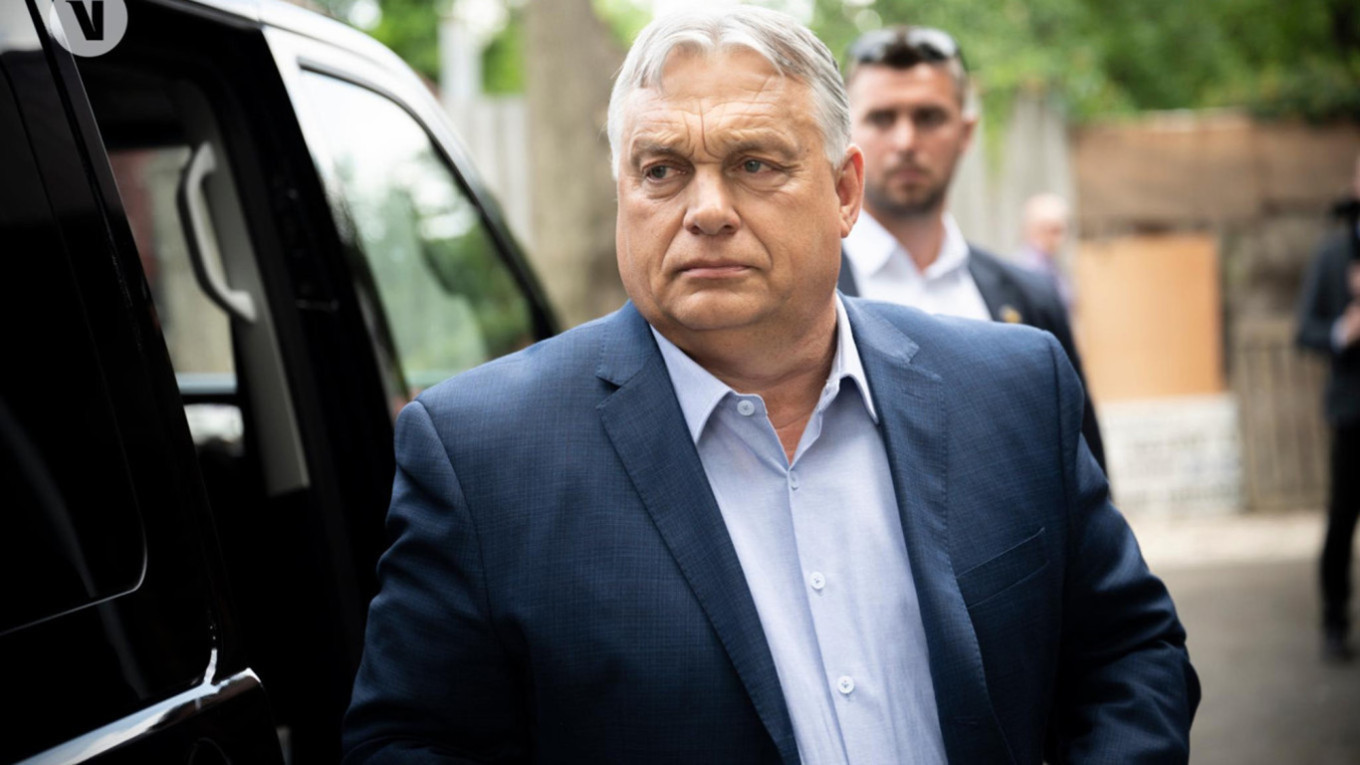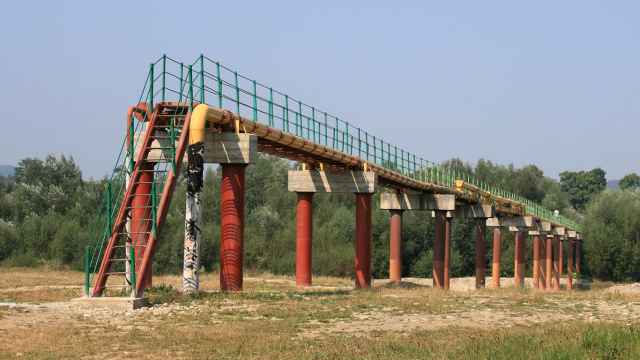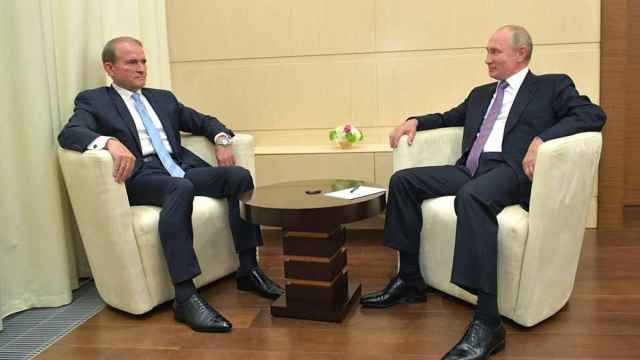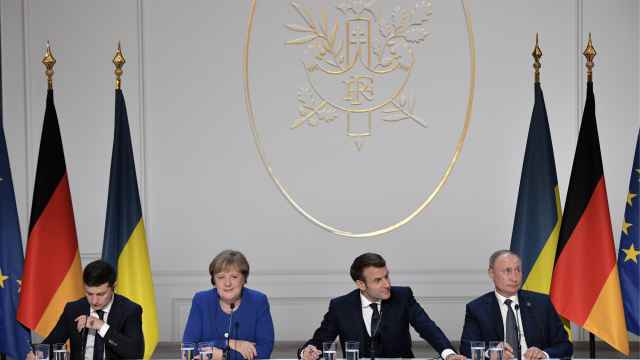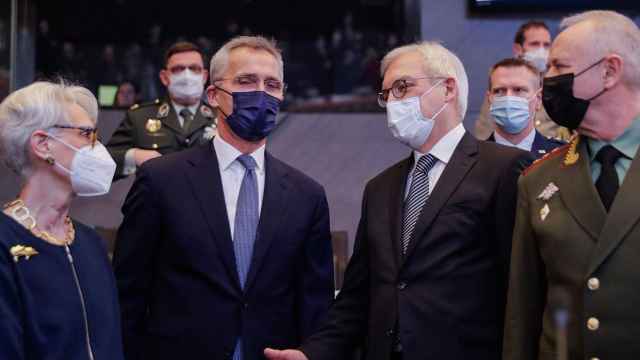Hungary's Moscow-friendly prime minister Viktor Orban urged Kyiv on Tuesday to work towards a "quick ceasefire" in Ukraine that could pave the way for negotiations with Russia to end more than two years of war.
Orban issued the appeal standing next to President Volodymyr Zelensky during a surprise visit to Ukraine, the first by the vocal critic of Western support for Kyiv.
"I asked the president to consider whether... a quick ceasefire could speed up the peace talks," Orban told reporters, adding that the ceasefire he envisions would be "time-limited."
Ukraine has repeatedly rejected calls for a pause in fighting, which it says would just give Russia time to regroup for a fresh assault.
The United States meanwhile on Tuesday announced new security aid for Ukraine worth $2.3 billion.
Unlike many other European leaders, Orban had not visited Kyiv since Russia invaded in February 2022 and is widely seen as the 27-member bloc's most pro-Russian leader.
In October 2023 he met Russian President Vladimir Putin at a summit in Beijing, becoming the first EU leader to do so since the start of the war.
The populist leader, in power since 2010, regularly criticises Europe's financial and military support for Kyiv, temporarily blocking a 50-billion-euro ($53-billion) aid package for weeks.
And he openly opposes holding EU membership talks with Kyiv as well as Brussels' sanctions on Moscow — though Budapest has not used its veto to block the moves.
A 'just peace'
The visit comes the day after Hungary took over the EU's rotating presidency, a position which gives the central European state sway over the bloc's agenda and priorities for the next six months.
Orban said he would report on his talks with Zelensky to EU prime ministers "so that the necessary European decisions can be taken."
Zelensky said the timing of the visit was symbolic.
"This is a clear indication of our common European priorities, of how important it is to bring a just peace to Ukraine," he said, urging European countries to maintain military support.
As the two leaders talked in Kyiv, yet more civilians were reported dead from Russian bombardments.
Moscow's forces killed two elderly women and injured nine in Nikopol, a city in southern Ukraine, the local governor said.
And a Russian strike killed one person and wounded seven more in the southern Kherson region, which is partially occupied by Russia's forces.
Asked about Orban's visit earlier on Tuesday, the Kremlin said it expected little to come of it, but described him as a "tough" politician who keenly defended his country's interests.
Hours after the talks in Kyiv, Moscow said Foreign Minister Sergei Lavrov held a phone call with Hungarian counterpart Peter Szijjarto in which the "Ukrainian crisis" was discussed.
'Better relations'
Relations have been frosty between Orban and Zelensky since the start of the war.
After winning re-election in April 2022, Orban said the Ukrainian leader was an "opponent" he had managed to defeat in the campaign after Zelensky had personally called him out over a lack of support in the first days of Russia's invasion.
In December, Zelensky sought out the Hungarian leader at the inauguration of Argentine President Javier Milei for what he called a "frank" conversation.
Videos circulated online showing the pair locked in a tense exchange.
They were again filmed in a short, animated exchange, last week on the sidelines of an EU Council meeting in Brussels.
Speaking in Kyiv on Tuesday, Orban said he wanted to "see much better relations" between Hungary and Ukraine, adding that he was "trying to put the discussions of the past behind us."
Hungary wields considerable influence over the West's support for Ukraine given its membership of both the EU and NATO, giving it the ability to thwart, delay, water down or outright block initiatives and funding.
But Orban's call for a ceasefire before substantive peace talks get underway is likely to be a non-starter.
Last month, Putin demanded Ukrainian troops abandon even more territory in the south and east if it wanted the fighting to stop — demands rejected by Zelensky as an "ultimatum" reminiscent of Adolf Hitler.
The Ukraine leader is also seeking to marshal international support behind his plan to end the war — one that sees Russian troops fully withdraw from the country, including the Crimean peninsula Moscow annexed in 2014, and pay for the destruction wrought since the February 2022 invasion.
At a major peace summit in Switzerland last month Hungary agreed with a document that called for Ukraine's "territorial integrity" to be respected in any final peace settlement.
A Message from The Moscow Times:
Dear readers,
We are facing unprecedented challenges. Russia's Prosecutor General's Office has designated The Moscow Times as an "undesirable" organization, criminalizing our work and putting our staff at risk of prosecution. This follows our earlier unjust labeling as a "foreign agent."
These actions are direct attempts to silence independent journalism in Russia. The authorities claim our work "discredits the decisions of the Russian leadership." We see things differently: we strive to provide accurate, unbiased reporting on Russia.
We, the journalists of The Moscow Times, refuse to be silenced. But to continue our work, we need your help.
Your support, no matter how small, makes a world of difference. If you can, please support us monthly starting from just $2. It's quick to set up, and every contribution makes a significant impact.
By supporting The Moscow Times, you're defending open, independent journalism in the face of repression. Thank you for standing with us.
Remind me later.


